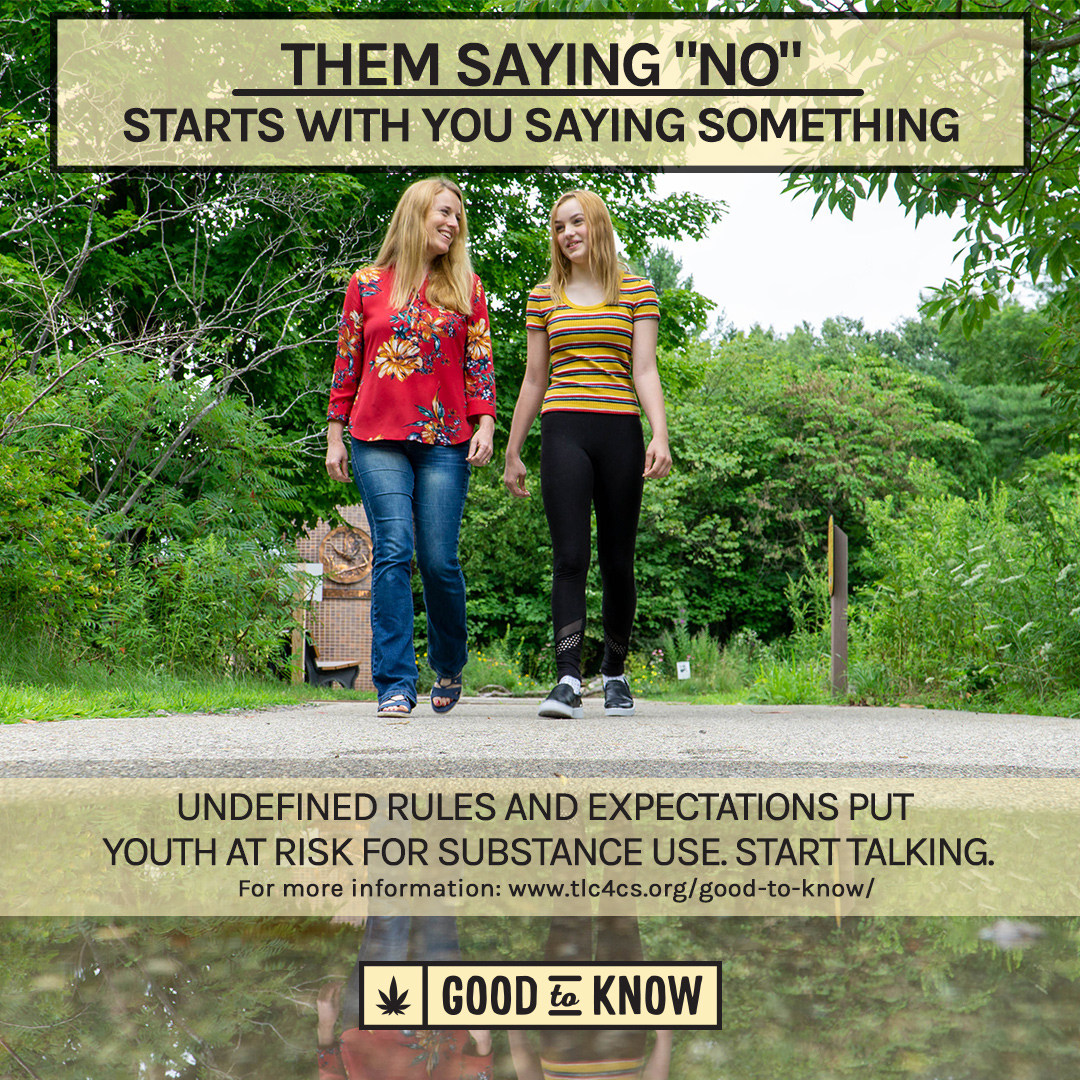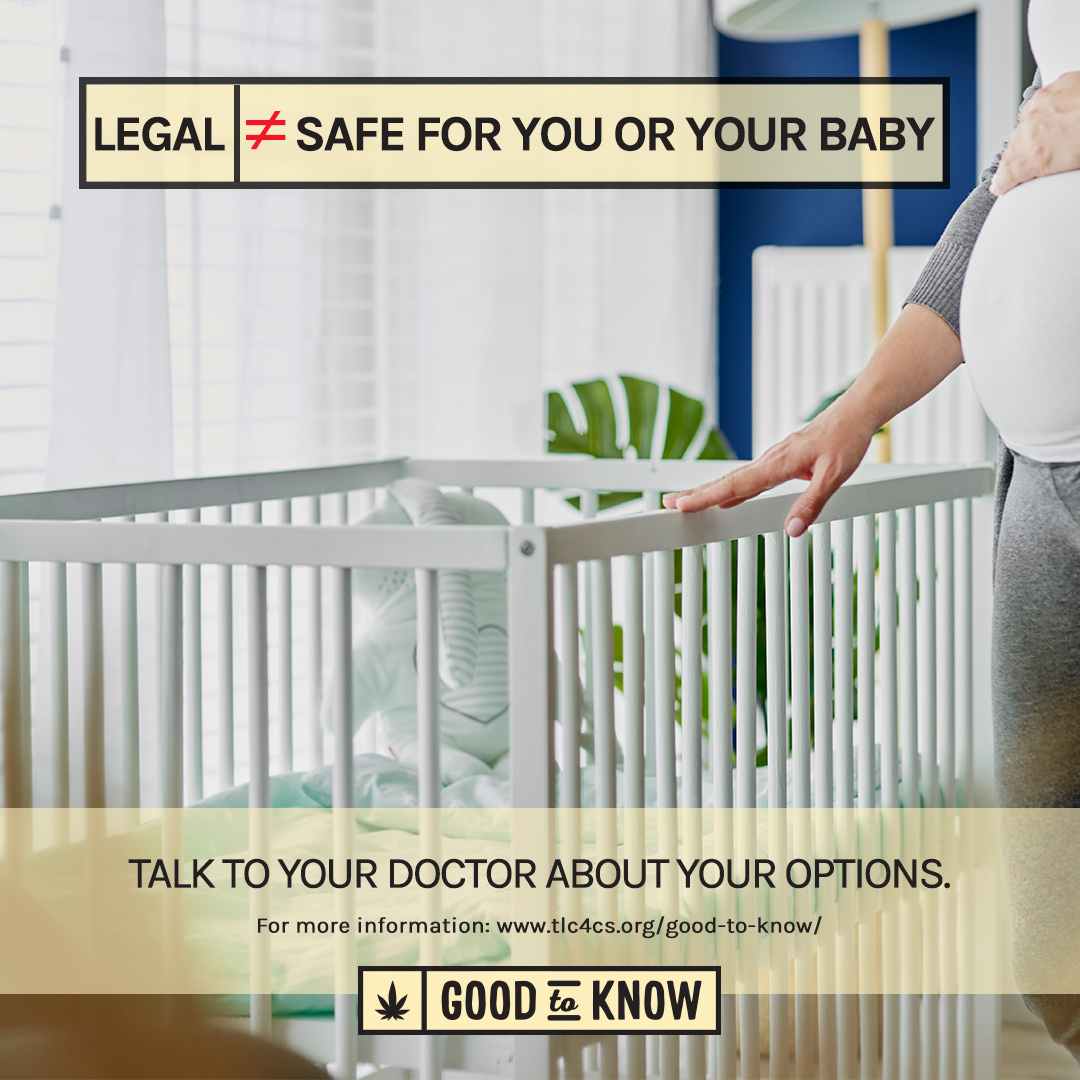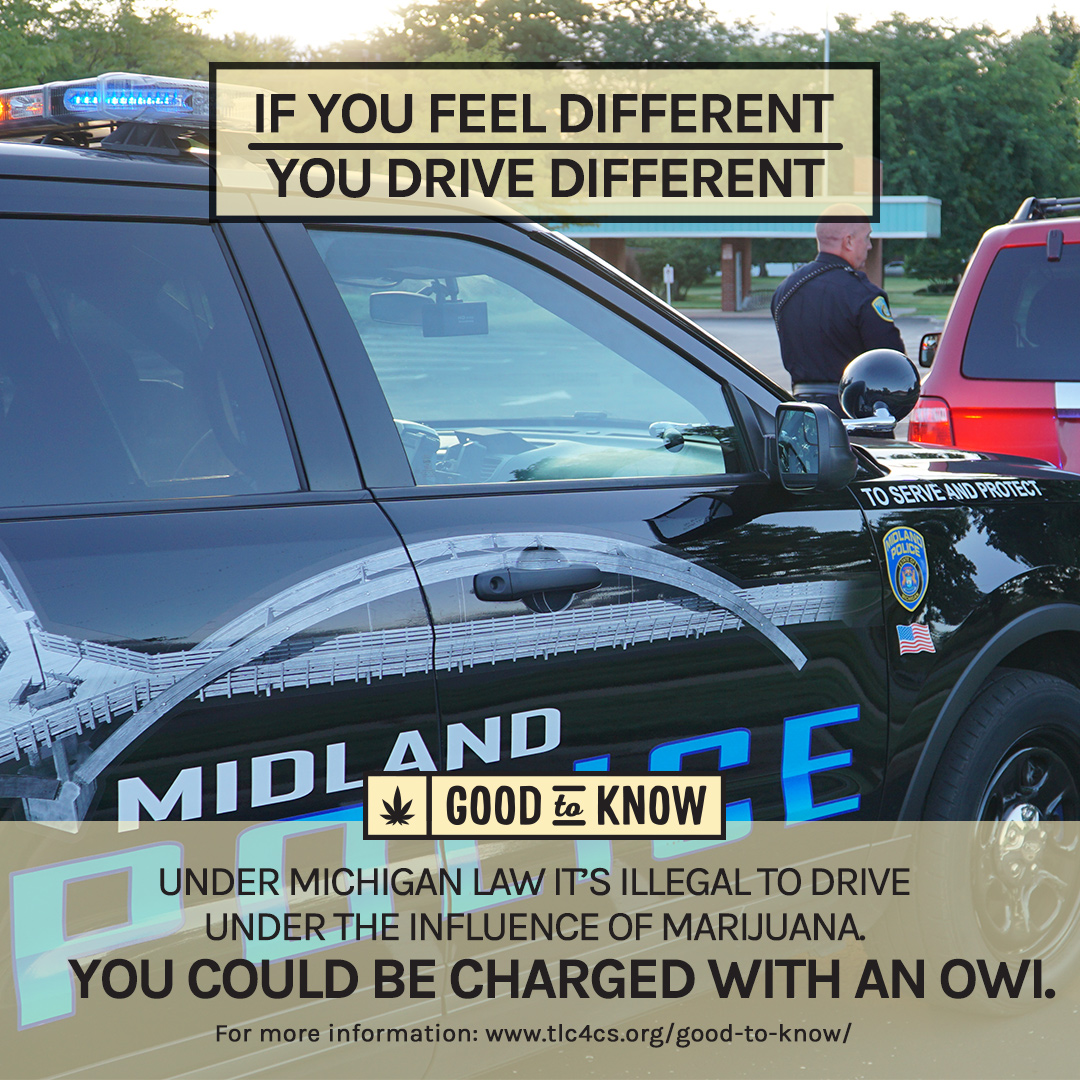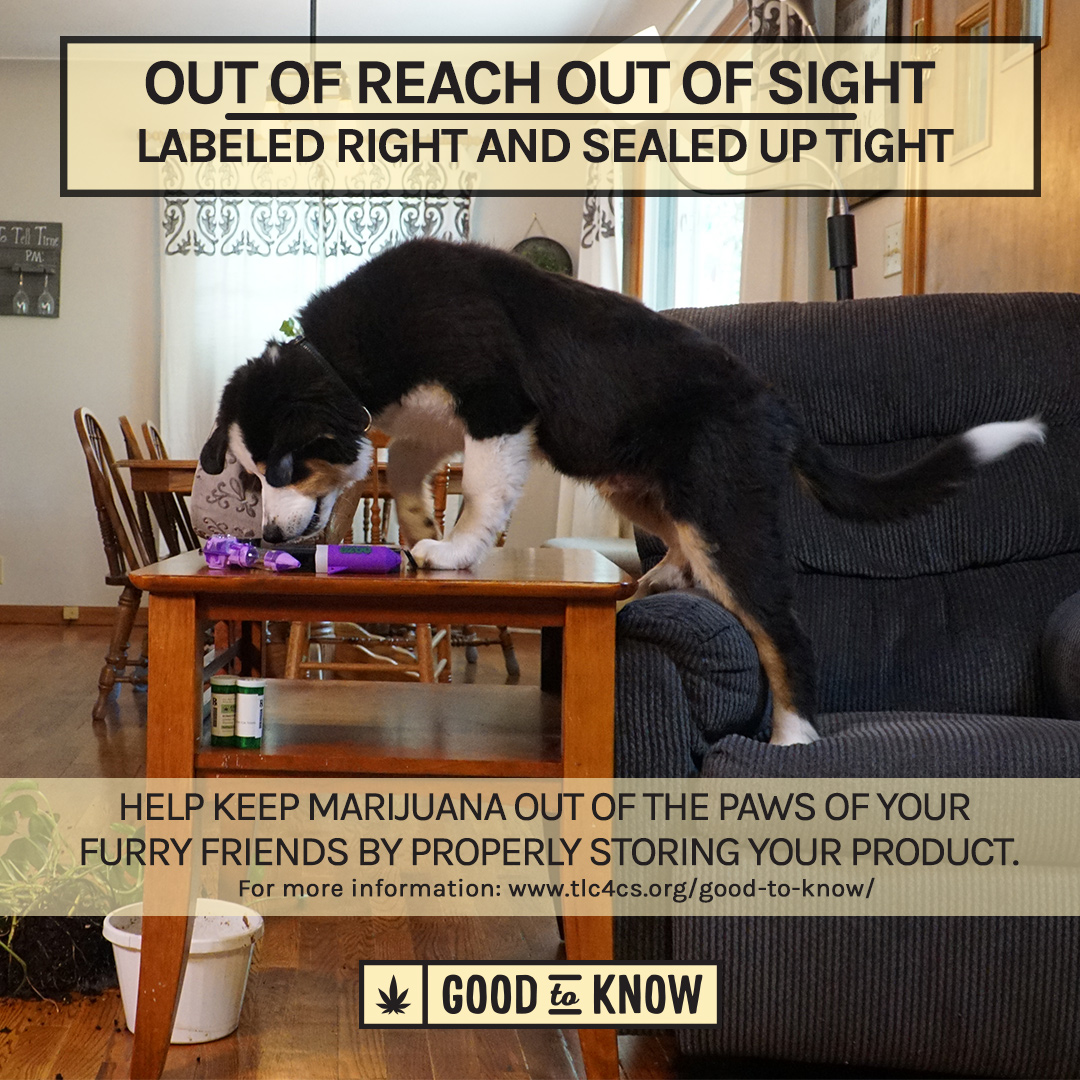Be Safe. Be Educated. Be Responsible.

Cannabis. Marijuana. Weed. Mary Jane. Herb. Pot.
THC: the psychoactive chemical (active ingredient) that changes the brain and makes people feel physical effects.
CBD: the non-psychoactive chemical found in the cannabis plant.
Adults age 21 and over are free to possess marijuana and consume it in private.
Adults age 18 and over are allowed to use medical marijuana with a prescription.
Smoking: Cannabis (marijuana) is commonly smoked using pipes, water pipes called bongs, or hand-rolled cigarettes called joints.
Vaping: Vaporizers heat marijuana to release its active THC and the vapor is inhaled. Vaping often refers to nicotine use, but vape pens are also commonly used to inhale THC.
Dabbing: THC concentrates, like hash oil, wax, and shatter, can contain up to 60-80% THC and may take effect very quickly. High levels of THC can be dangerous.
Edibles: Candies, baked goods, teas, and sodas can contain more THC than a user is aware of. Edibles take longer to take effect, causing some users to consume too much.
Topical: Marijuana-infused lotions, salves, and balms are sold for localized pain, inflammation, and skin
conditions. Some do not contain THC and do not make the user feel high. Most infused products contain THC and effects can be felt for hours
There are many reasons why people choose to use. For example:
- To deal with stress, physical pain, or emotional suffering.
- To relax or have fun, much like alcohol.
- To address health issues as prescribed by a doctor.
- Cannabis impairs decision making and driving skills.
- Cannabis use by teens can impact brain development.
- Research shows that using cannabis during pregnancy can cause health problems in newborns— including low birth weight (CDC).
- Cannabis is harmful if ingested by young children or pets.
- Like all substances, cannabis carries some risk of addiction.

Youth & Marijuana
Talk With Youth About Marijuana
Talking with youth about marijuana can be difficult, but it’s the best way to help them make good decisions. The more informed you are, the more helpful you can be to the youth in your life.
Use these helpful toolkits to start the conversation:
Cannabis Conversations for Youth 8-12 years old.
Cannabis Conversations for Youth 13-17 years old.
Cannabis Conversations for Youth 18-21 years old.
Advice for Teachers, Coaches, Family Members & More
What you think matters to the young people in your life. As an adult who they trust, you can impact the choices of the youth you work with. What you say, and the example you set, makes a difference.
-
Remind Them That They’re Role ModelsLet them know that younger students and siblings look up to them as examples. Learn more about the different ways youth can use marijuana so you know what to look out for.
-
Remind Them What Can Happen for Breaking the RulesTeens that break school rules may have to go to drug counseling. They can also be suspended or kicked out of school or off a team. They can also face prosecution.
-
Effect on School and SportsStress the fact that teens who use marijuana regularly may have trouble learning and memory issues. They may also have lower math and reading scores. Marijuana can also affect the way they play sports because it can affect coordination.
-
Learn How Teens Are Using MarijuanaKids may try to use marijuana at school or during school activities. Learn the different ways youth can use marijuana so you know what to look out for.
Health Consequences for Youth
While we still have a lot to learn about the physical, emotional and mental consequences of underage non-medical marijuana use, we already know enough to know that it can be dangerous. It’s important for you to learn some of the negative health impacts so that you can help young people understand some of the risks they could be taking by using cannabis (marijuana).
Dependency
Marijuana is addictive. It’s harder to stop using marijuana if you start at a young age. Youth who start using marijuana, alcohol or other drugs — even occasionally — may be more likely to continue using later in life.
Learning & Memory Loss
Youth who use marijuana regularly are more likely to have difficulty learning, memory issues, and lower math and reading scores. The more marijuana youth use, the harder it may be for them to learn. And the effects can last weeks after quitting.
Lower Athletic Performance
Marijuana smoke has many of the same chemicals as tobacco smoke, which are not healthy for lungs. Marijuana can impact a teen’s ability to learn new skills, even weeks after they last used. Marijuana can also affect athletic performance and coordination.
Harms Brain Development
Brain development is not complete until about age 25. For the best chance to reach their full potential, youth should not use cannabis.
Legal Consequences for Youth
Getting caught with cannnabis (marijuana) can involve fines, public service hours, misdemeanor/felony charges and even possible loss of driver’s license. It can also cause a young adult to lose their parents’ trust, resulting in the loss of privileges. And if there’s one thing youth hate to hear, it’s “I’m not mad. I’m just disappointed.”
Loss of Financial Aid
Marijuana charges can result in the loss of federal financial aid for college, including: Perkins Loans, Pell Grants, Supplemental Educational Opportunity Grants, PLUS Loans, and Work-Study Programs.
Unemployment
Many employers still prohibit marijuana use by their employees, which could mean losing a job. Losing a job also means losing a job reference, which makes future employment even harder to get.
All minors under the age of 18 are prohibited from working in any occupation in a registered marijuana dispensary, any establishment that cultivates, produces, or sells marijuana or products that contain marijuana, and any non-medical marijuana social clubs.
Banned from Sports/Activities
If they’re caught using marijuana, they can be removed from sports teams and extracurricular activities, suspended, expelled or referred to drug counseling.

Pregnancy & Marijuana
How Marijuana Affects Pregnant & Breastfeeding Women
Medical Marijuana
In general, it isn’t a good idea to use any medicines while pregnant or breastfeeding that aren’t recommended by a doctor. Talk to your doctor about a safer choice.
Common Questions About Marijuana
Secondhand Smoke
Secondhand smoke from marijuana has many of the same cancer-causing chemicals as smoke from tobacco. A smoke-free environment is safest and healthiest. Don’t allow smoking in your home or around your baby.
Legal Implications
Some hospitals test babies after birth for drugs. If your baby tests positive for THC at birth, Michigan law says the hospital must notify child protective services. Talk to your doctor early in your pregnancy to get the support you need to be healthy. Your doctor can help connect you with treatments that are confidential and nonjudgmental.
Talk to your doctor if you’re pregnant or breastfeeding and need help to stop using marijuana. Your treatment will be confidential.
Resources for Help Quitting:
SAMHSA’s National Helpline – 1-800-662-HELP (4357)
SAMHSA’s National Helpline is a free, confidential, 24/7, 365-day-a-year treatment referral and information service (in English and Spanish) for individuals and families facing mental and/or substance use disorders.

Driving & Marijuana
Q: Can I smoke marijuana in my car?
A: Not when you’re driving.
Any form of marijuana consumption — from smoking to eating edibles — is still illegal while driving.
Q: Can I smoke marijuana as a passenger in a car?
A: No. That’s also illegal.
Q: Can I smoke in my car if it’s turned off?
A: Lawyers are advising to treat marijuana consumption like alcohol. So, no.
Q: Can I drive around with weed in my car?
A: Yes.
While consuming marijuana is illegal while driving, transporting marijuana and marijuana products is not illegal. Individuals can have up to 2.5 ounces of marijuana on their person.
Q: Can I transport plants in my own car?
A: Yes.
A: Most likely.
Similar to the way the law treats firearms or minors found with alcohol, the concept of “constructive possession” will also apply to marijuana
Q: What’s going to happen to my car insurance if I get in trouble?
A: Experts say a driving under the influence charge will cause a driver’s insurance rates to go up.
Q: Is there a legal limit for marijuana — like 0.08 for alcohol?
A: There is no legal limit for marijuana intoxication in Michigan. Any level of the active chemical in marijuana — tetrahydrocannabinol (THC) — detected in the blood stream is enough for authorities to consider charges of driving under the influence
Q: What are the penalties for driving under the influence of marijuana?
A: First offense – One or more of the following – community service for not more than 360 hours; imprisonment for not more than 93 days; fine of not more than $300. Mich. Comp. Laws Ann. § 257.625(9)(a).
Second offense (w/i 7 years) – fine of not less than $200 or more than $1,000; one or more of the following – imprisonment for not less than 5 days or more than 1 year, community service for not less than 30 days nor more than 90 days. Id. § 257.625(9)(b).
Third and subsequent offense (w/i 7 years) felony – fine of not less than $500 or more than $5,000; either of the following – imprisonment for not less than 1 year or more than 5 years; probation with imprisonment for not less than 30 days or more than 1 year with community service for at least 60 days, but less than 180 days. Id. § 257.625(9)(c).
You must be over 21
In order to possess or use cannabis (marijuana) you must either be a medical marijuana cardholder OR be 21 years of age or older. It’s that simple.
Don’t use in public
Using marijuana in any form (smoking, eating or vaping) isn’t allowed in public places, including amusement parks, ski resorts, sporting and music venues, state and national parks, campsites, playgrounds, sidewalks and roads, marijuana retail businesses, bars, restaurants and outdoor or rooftop cafes.
So where can you use it? Marijuana use is legal within the confines of private property. Just keep in mind that property owners, landlords, and rental companies can ban the use and possession of marijuana on their premises.
Federal land is under federal law
Cannabis (marijuana) is legal under State of Michigan law. Federally, it is not legal. If you’re on federal property, such as a national park or a border crossing, you can’t even have it in your possession.
Don’t cross state lines or international boundaries
It’s illegal to leave Michigan with any cannabis (marijuana) products – medical or non-medical. Mailing cannabis (marijuana) from Michigan is also illegal.
There’s a limit to how much you can grow
Michiganders can grow marijuana for personal use. As many as 12 plants per household.
The 12 plants should be indoors, or outside in a locked enclosure that is not easily visible from public areas. Growing on rental properties is subject to landlord approval.

Safety & Marijuana
Keep it out of sight
An adult who chooses to use should make sure the cannabis (marijuana) is not visible from the public eye.
Keep it locked up
An adult who chooses to use must take reasonable precautions to prevent unauthorized access by individuals under the age of 21. Ease of access is the #1 way youth and vulnerable populations obtain substances.
Store all marijuana products in a locked area, out of sight and out of reach of children. Keep cannabis (marijuana) in the child-resistant packaging from the retailer. Remember, how you store cannabis (marijuana) should change as your children get older. What works to protect a toddler from accidental ingestion may not work to protect a curious teenager who might actually be looking for it.
Accidental Ingestion
If your child eats or drinks marijuana, they may need immediate medical help. Some symptoms to look out for include: problems walking or sitting up, difficulty breathing, and becoming sleepy. If a child may have eaten marijuana, call the poison control hotline, 1-800-222-1222, or 911 if it’s an emergency.
If you’re a pet owner, you should also store your cannabis (marijuana) safely. Call a veterinarian if your pet is showing the following symptoms of ingesting cannabis (marijuana): depression and listlessness, loss of motor coordination, loss of balance, vomiting or low body temperature.














